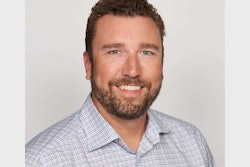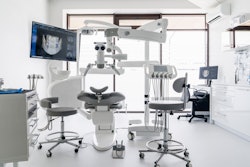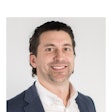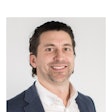There’s been a seismic shift in private equity (PE) investment in dentistry since interest rates and inflation soared in 2022. Whereas before PE-backed companies grew rapidly through mergers and acquisitions (M&A), now investors are looking to back dental groups focused on same-store growth, efficiency through standardization, and low staff turnover.
 Preston Brice.
Preston Brice.
“The current market environment is driving a return to fundamentals, and the era of just aggregating EBITDA [earnings before interest, taxes, depreciation, and amortization] is over,” said Preston Brice, managing partner of Barclay Hill Partners, a healthcare-focused private equity firm.
Many investors are prioritizing deals wherein companies have a standardized practice management system, a data analytics platform, revenue cycle management automation, and patient engagement tools.
“Tech stack standardization is the hallmark of a good organization, and it is a value signal to acquirers,” Brice explained. “In order to drive maximum value, you need to have integration and organic growth in addition to high-quality teams and a proven growth model.”
Tech stack standardization improves PE valuation
Riccobene Associates Family Dentistry is a fast-growing dental service organization (DSO) with more than 65 affiliated practices. It was one of the only large dental groups to secure private equity funding in 2024.
 Lorri Detrick.
Lorri Detrick.
“The value of having standardized technology and operating systems was clear to us. Our primary practice management system (Denticon) and our data analytics tool (Jarvis) provide centralized data, real-time visibility across all locations, and demonstrate operational consistency.
“That level of transparency not only streamlined the due diligence process, it helped us command a stronger valuation. Our infrastructure and standardization signaled that we were ready to scale,” said Detrick.
Technology due diligence can avoid costly problems
Having outdated technology impacts healthcare deals outside of the dental industry too.
RSM is a leading provider of assurance, tax, and consulting services to the middle market, which generally refers to companies with annual revenues ranging between $10 million and several billion dollars. One of RSM’s clients made a strategic acquisition, then discovered post-sale that the acquired company’s outdated technology could not integrate with the buyer’s business applications.
 Jennifer Busse.
Jennifer Busse.
“If technology due diligence had been done ahead of close, the client could have negotiated to account for $30 million in upgrade costs or walked away from the deal,” said Jennifer Busse, principal M&A integration and separation leader at RSM.
Preparing for dental M&A transactions
While many people were hopeful that 2025 would be the year that private equity investment in the dental industry resumed, experts now anticipate a more substantial recovery in 2026, contingent upon resolving trade issues and a reduction in interest rates.
There are three critical elements for enhancing practice value, said Brian Colao, the director of Dykema’s DSO Industry Group, a law firm specializing in comprehensive legal matters affecting DSOs, including mergers and acquisitions.
 Brian Colao.
Brian Colao.
“You need to cultivate a strong organizational culture to ensure staff retention. You need to foster positive relationships with affiliated doctors. And you need to leverage technology for operational efficiency and growth,” said Colao.
Having a cloud-based practice management system, artificial intelligence for radiograph analysis, and automated revenue cycle management tools are essential now, in Colao’s opinion.
Richard Kes, a healthcare senior industry analyst for RSM, agrees.
 Richard Kes.
Richard Kes.
“The benefits that arise through standardization almost always create a positive ROI [return on investment],” Kes said.
“Standardization and building efficiencies through technology is generally the first place we look to help our clients build enterprise value accretion.”
Beth Gaddis is the editor in chief at Planet DDS, a dental technology company specializing in cloud-based practice management systems, digital imaging, and dental marketing services. Previously, Gaddis was the marketing director for two large dental service organizations. Prior to entering the dental industry, Gaddis was a journalist for 16 years in a variety of roles, including as a TV news producer at the CBS affiliate in Boston. You can connect with Gaddis on LinkedIn.
The comments and observations expressed herein do not necessarily reflect the opinions of DrBicuspid.com, nor should they be construed as an endorsement or admonishment of any particular idea, vendor, or organization.




















